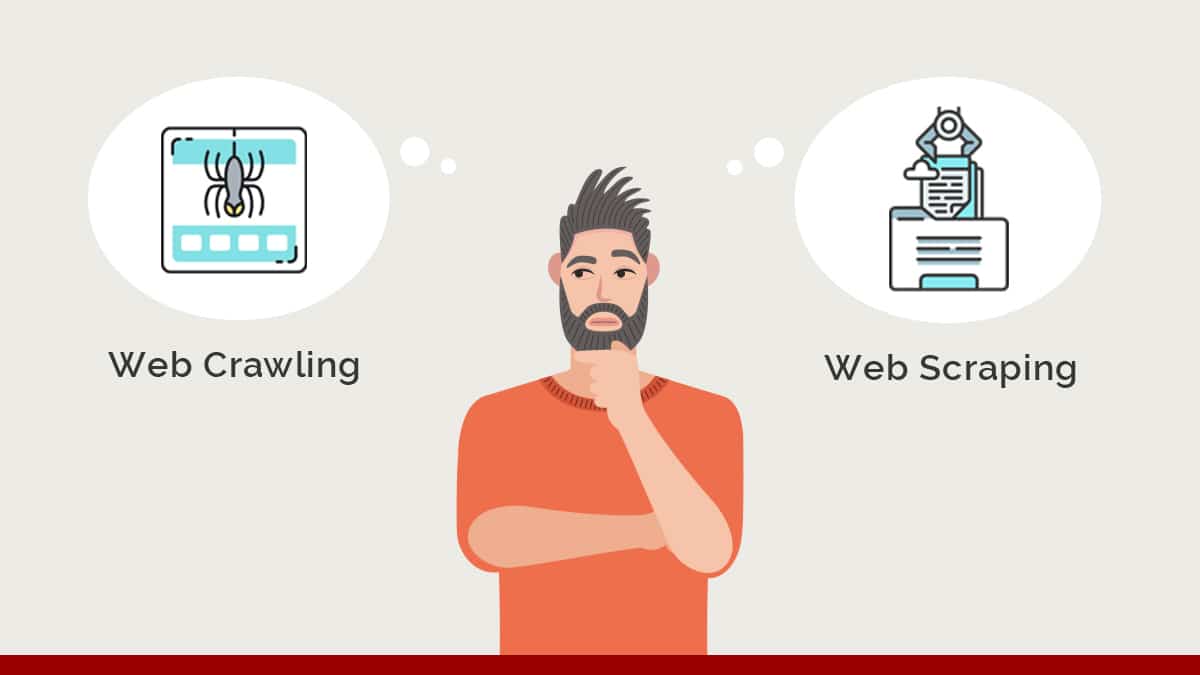Listcrawler Baltimore: This exploration delves into the world of data scraping in Baltimore, examining the techniques employed, the legal and ethical implications, and strategies for mitigation. We will investigate the types of data targeted, the motivations behind such activities, and the potential consequences, both positive and negative, of listcrawling in this specific urban context. Understanding this complex issue requires a balanced perspective, acknowledging both the potential benefits and significant risks involved.
The study will analyze Baltimore’s unique data landscape, highlighting publicly available information and the security measures in place to protect it. We’ll examine various listcrawling methods, ranging from simple web scraping to more sophisticated techniques, and discuss the legal and ethical considerations surrounding data acquisition. Finally, we will propose practical mitigation strategies to help organizations and individuals protect their data from unauthorized access.
Understanding “Listcrawler Baltimore”
The term “Listcrawler Baltimore” suggests the automated extraction of data from various online sources within the city of Baltimore. This activity involves the use of software programs (listcrawlers) to systematically collect information, often from publicly accessible websites and databases. The implications are multifaceted, ranging from benign data analysis to potentially illegal or unethical activities.
Interpretations of “listcrawler” in a Baltimore context could include scraping real estate listings, compiling business contact information, gathering public records data, or accumulating social media profiles. The targeted lists could encompass a wide array of data, depending on the crawler’s purpose.
Types of Targeted Lists
Listcrawlers in Baltimore might target numerous data types. These could include property records (address, owner, value), business licenses (name, address, type of business), voter registration information, crime statistics, public transportation schedules, and social media profiles of Baltimore residents.
Motivations Behind Listcrawling
Motivations for listcrawling vary widely. Legitimate uses might involve market research, urban planning, journalism, or academic research. However, malicious motivations include identity theft, targeted advertising, competitive intelligence gathering, or even criminal activities such as fraud.
Baltimore’s Data Landscape
Baltimore possesses a rich landscape of publicly available data. This data, while beneficial for transparency and civic engagement, also presents potential vulnerabilities to listcrawlers.
Publicly Available Data in Baltimore
| Data Type | Source | Accessibility | Potential Uses |
|---|---|---|---|
| Property Records | Baltimore City Department of Assessments | Online database, partially open | Real estate analysis, market research, targeted advertising |
| Business Licenses | Baltimore City Department of Licenses & Inspections | Online database, partially open | Market research, competitive intelligence, targeted advertising |
| Crime Statistics | Baltimore Police Department | Online portal, publicly accessible | Crime analysis, journalistic reporting, urban planning |
| Public Transportation Data | Maryland Transit Administration (MTA) | API, publicly accessible | Transportation planning, route optimization, app development |
Specific Datasets of Interest
Specific datasets that might attract listcrawlers include the Baltimore City Open Data Catalog, which contains various datasets related to city services, infrastructure, and demographics. Also, real estate listing websites and social media platforms with Baltimore-centric data are potential targets.
Data Security Measures
Baltimore City employs various security measures to protect its data, including access controls, data encryption, and regular security audits. However, the sheer volume and accessibility of public data present ongoing challenges.
Methods Employed by Listcrawlers
Listcrawlers employ various sophisticated techniques to gather data. These techniques range from simple web scraping to more advanced methods that evade detection.
Data Collection Techniques
- Basic Web Scraping: Using simple scripts to extract data from HTML source code.
- Advanced Web Scraping: Employing sophisticated techniques to bypass website security measures, such as rotating IP addresses and user agents.
- API Access: Utilizing publicly available APIs to access data programmatically.
- Data Aggregation: Combining data from multiple sources to create comprehensive datasets.
Tools and Technologies
Listcrawlers utilize various tools and technologies, including programming languages like Python and R, web scraping libraries such as Beautiful Soup and Scrapy, and proxy servers to mask their IP addresses.
Legal and Ethical Implications
Listcrawling raises significant legal and ethical concerns. The legality depends on the data targeted, the methods used, and the purpose of data collection. Ethical concerns center around privacy violations, potential misuse of information, and the lack of informed consent.
Legal Ramifications

In Baltimore, as in other jurisdictions, listcrawling activities might violate laws related to data privacy, computer fraud, and intellectual property rights. The Computer Fraud and Abuse Act (CFAA) and various state laws pertaining to data privacy are relevant here.
Ethical Concerns, Listcrawler baltimore
Unethical listcrawling can lead to privacy violations, identity theft, discrimination, and the spread of misinformation. The lack of informed consent from individuals whose data is collected is a major ethical concern.
Hypothetical Scenario
Imagine a listcrawler collecting personal data from Baltimore residents’ social media profiles without their consent. This data is then used to create targeted phishing campaigns, leading to financial losses and identity theft for victims. This scenario highlights the severe consequences of unethical listcrawling.
Best Practices
Responsible data collection requires transparency, informed consent, data minimization, and adherence to all applicable laws and regulations. Data collectors should clearly state their purpose, obtain consent where necessary, and protect the collected data from unauthorized access.
Mitigation Strategies
Several strategies can mitigate the risks associated with listcrawling. These strategies focus on deterring scraping attempts, protecting sensitive data, and monitoring for suspicious activity.
Notice alignment near me for recommendations and other broad suggestions.
Mitigation Techniques
| Technique | Effectiveness | Cost |
|---|---|---|
| Website Design Modifications (e.g., robots.txt, CAPTCHAs) | Moderate to High | Low to Moderate |
| Rate Limiting | Moderate | Low |
| IP Address Blocking | Moderate | Low |
| Data Encryption | High | Moderate to High |
| Regular Security Audits | High | Moderate to High |
Case Studies (Illustrative, not real)
The following are fictional case studies illustrating the potential outcomes of listcrawling activities.
Successful Listcrawling Operation

A real estate investment firm successfully used a listcrawler to gather data on properties in a specific Baltimore neighborhood. This data, combined with market analysis, allowed them to identify undervalued properties and make profitable investments. While legally permissible, the firm’s actions raised ethical concerns regarding potential displacement of existing residents due to increased property values.
Failed Listcrawling Attempt
A competitor attempted to scrape sensitive business data from a Baltimore company’s website. However, robust security measures, including rate limiting and CAPTCHAs, thwarted the attempt. The competitor’s efforts were unsuccessful, highlighting the importance of proactive security measures.
Legal Repercussions
A data broker illegally scraped personal information from Baltimore City’s public records database and sold it to marketing firms. This resulted in a lawsuit alleging violations of data privacy laws, leading to significant fines and reputational damage for the data broker. This illustrates the potential legal consequences of unethical listcrawling.
In conclusion, understanding listcrawling in Baltimore necessitates a comprehensive approach that considers the technical aspects, legal frameworks, and ethical implications. While data scraping can offer valuable insights, it’s crucial to acknowledge the potential for misuse and implement robust security measures. By understanding the methods employed, the risks involved, and the available mitigation strategies, we can work towards a more responsible and ethical data environment in Baltimore and beyond.
This proactive approach will help protect sensitive information while fostering innovation and responsible data utilization.
User Queries
What are the potential penalties for illegal listcrawling in Baltimore?
Penalties can vary depending on the severity of the violation and the specific laws broken. They could range from civil lawsuits for damages to criminal charges with significant fines and imprisonment.
How can I determine if my website is being targeted by a listcrawler?
Signs include unusually high website traffic, slow loading times, database overload, and unusual patterns in website access logs. Specialized monitoring tools can also help detect scraping activity.
What are some ethical considerations beyond legality when considering listcrawling?
Ethical concerns include respecting data privacy, obtaining informed consent where appropriate, and ensuring data is used responsibly and not for malicious purposes such as identity theft or fraud.


